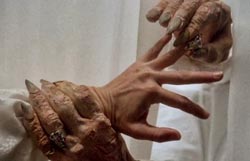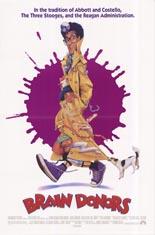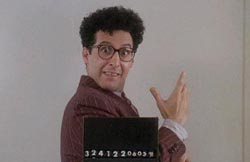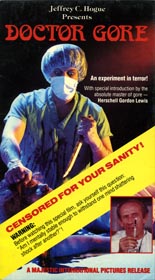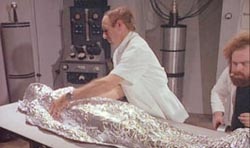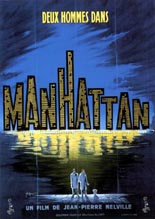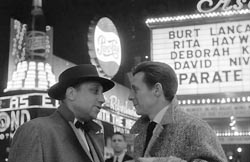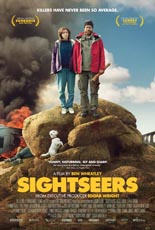
 Comedies rarely come darker than Ben Wheatley’s Sightseers, written by its lead actors, Alice Lowe and Steve Oram. Both can be seen in The World’s End by Edgar Wright, who lends his name here as stamp of approval with an executive-producer credit. The British film doesn’t need it — it’s funnier than any of his works, for starters — but if it attracts more eyeballs to Wheatley’s little picture, mission accomplished.
Comedies rarely come darker than Ben Wheatley’s Sightseers, written by its lead actors, Alice Lowe and Steve Oram. Both can be seen in The World’s End by Edgar Wright, who lends his name here as stamp of approval with an executive-producer credit. The British film doesn’t need it — it’s funnier than any of his works, for starters — but if it attracts more eyeballs to Wheatley’s little picture, mission accomplished.
Lowe’s Tina is dumpy, dowdy, living with her woe-is-me mother (Eileen Davies, Bright Star) and, for the first time in her 34 years, has a boyfriend. He’s the bearded, burly Chris (Oram), with whom she’s going on holiday via RV, over Mum’s passive-aggressive protests. Chris’ meticulously planned agenda covers national parks to museums (separate) celebrating trains and pencils, all leading to the area he grew up.
 What he has not planned for — but should have — is the selfish disrespect of fellow tourists, both to one another and the sites of varying sacredness. When Chris senses the proper reverence is not being shown, Chris snaps and Ellen follows.
What he has not planned for — but should have — is the selfish disrespect of fellow tourists, both to one another and the sites of varying sacredness. When Chris senses the proper reverence is not being shown, Chris snaps and Ellen follows.
Sightseers‘ trick is that our travelers turns out to be hypocrites, as much of an intrusion as everyone else. It asks, “What if Clark and Ellen Griswold were psychopaths?” and the answer takes unexpected turns — not out of course correction, but deliberate defilement of viewers’ expectations. As with his previous film, the highly recommended shocker Kill List, at no point does Wheatley shy away from the edge of the ledge. Luckily, he and his star scribes know just how to play terrible acts — from dog puncture to potpourri sex — so that they come off as awfully, wrongly funny. —Rod Lott


 I’ve seen enough movies to know that if you receive a sizable sum from a bank account with the numbers “666,” Something Is Up. In
I’ve seen enough movies to know that if you receive a sizable sum from a bank account with the numbers “666,” Something Is Up. In 